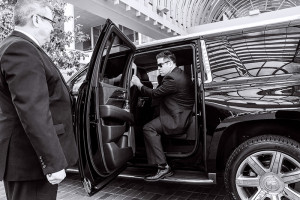Ride Sharing Services Attempt to Get the ‘Lyft’!
Los Angeles Bariatric Surgery and Lap Band procedures

About a year ago, we posted an article about the dilemma facing both the Southern California limousine and taxi services in regards to the introduction of ride sharing services like Uber, Lyft and Sidecar.
For those unfamiliar with the situation, these various ride sharing systems operate as a series of Smartphone apps for iOS, Android and other cell phone operating systems. The idea is that by using these apps, customers can ‘hail a cab’ online and a driver, usually unregistered with the State of California would pick up the customer and drive him or her to their destination.
Since that time, the controversy has escalated. Back in June of 2014, the Los Angeles City Council threatened half the operations of all Southern California based ride-sharing services. Even with the “ban”, these companies continued to operate their smartphone apps and provided rides all over the Los Angeles region. From LAX to nightclubs, the pink mustached vehicles of Lyft and similar ridesharing services were utilized everywhere.
As of September 18, 2014, a landmark decision has been reached rendering California the first state in the nation to legally regulate these ride-sharing apps and services. According to a press release from the California Public Utilities Commission, the regulations establish a new category of business called a Transportation Network Company, requiring those companies to obtain a license from CPUC, conduct criminal background checks, establish a driver training program, and hold a commercial insurance policy with a minimum of $1 million per-incident coverage.
While this decision is being hailed by the independent companies as an enormous victory, opening their relatively new foothold in the door even wider, taxi and limousine companies need not despair just yet.
Reading both the nuts and bolts of the argument and the comments, what stands out again & again is the issue of customer service.
These upstart companies (Lyft, and the rest) are succeeding because they are new and fresh. They are actually listening to what the public wants and needs and delivering it. Cars are clean, drivers are friendly, rates are affordable.
The taxi industry as a whole has had a bad rep for years but consumers have had no other choices. Due to their monopoly on the market, taxi drivers have become increasingly slovenly, surly, rude, etc. Overcharging is rampant. Drivers have been able to rest on their laurels because they know passengers are stuck with them and had no other options.
Limo companies are kind of lost in the shuffle between the two, but taking a limo or a Town Car has always signified class and a level of upscale service which has remained consistent throughout this “battle”. Limos are also surprisingly affordable, but that never crosses anyone’s mind.
If either company wants to succeed, customer service must be put at the forefront. Taxi drivers have the experience but not the attitude. Lyft has the friendliness, the cleanliness and the care, but not the professionalism or the finesse of premier limo service. That’s where the biggest edge of limo service comes in.
Consider both sides when making your decision.
Limo service offers these 3 things that ride-sharing services do not:Premier, personalized/vetted chauffeurs with
1. Premier, personalized/vetted chauffeurs with CONSISTENT price.
2. High-touch customer service and support.High-quality vehicle selection and variety.
3. High-quality vehicle selection and variety.
Consider a limo or a town car first before going for a trendy ride -sharing app.
